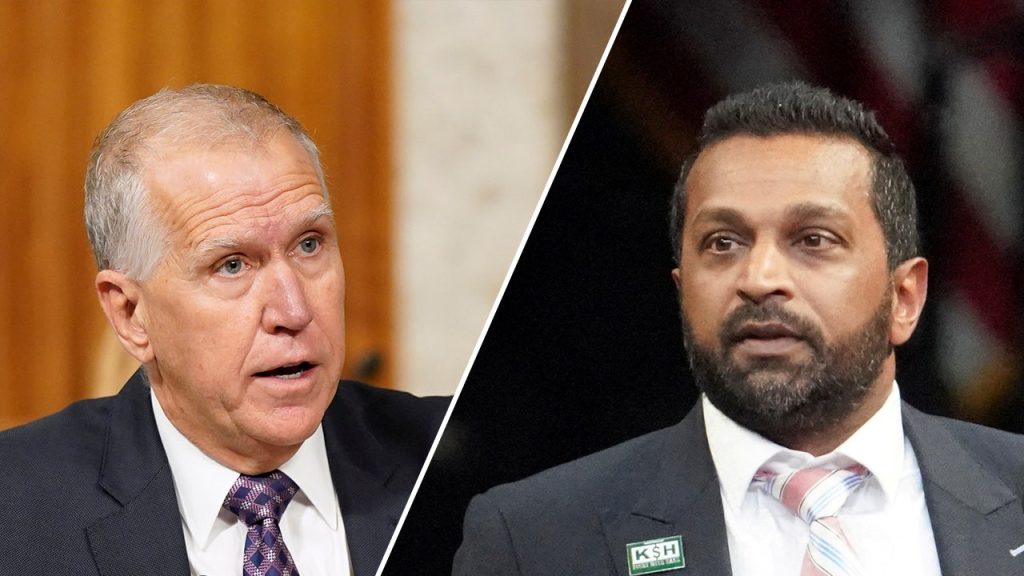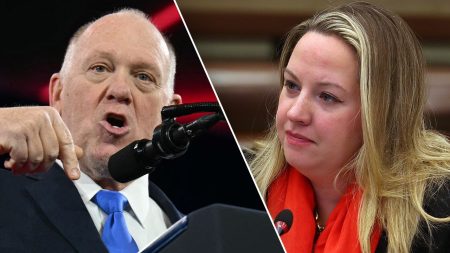Sen. Thom Tillis (R-NC) has expressed deep concern over reports that Kash Patel, President-elect Donald Trump’s nominee for FBI director, was the target of an Iranian hacking attempt. In a letter to FBI Deputy Director Paul Abbate, Senator Tillis characterized the alleged cyberattack as “extremely alarming” and raised concerns about the rapid dissemination of sensitive information regarding the incident to the news media. He emphasized the critical importance of confidentiality within the FBI and other intelligence agencies to safeguard national security and protect individuals from both domestic and foreign threats. The senator’s letter underscores the potential gravity of the alleged hacking attempt and the broader implications for national security.
The news of the alleged hacking attempt targeting Patel first surfaced through various media outlets, raising immediate questions about the source of the leak and the potential compromise of sensitive information. While the Trump transition team affirmed Patel’s crucial role in countering the Iranian regime during the first Trump administration and his anticipated role in implementing national security policies as FBI director, Senator Tillis’s letter highlights the urgency of addressing the security breach and potential internal leaks within the FBI. The letter reflects the senator’s commitment to ensuring the integrity and security of the FBI’s operations in the face of both external and internal threats.
Senator Tillis’s letter to Deputy Director Abbate specifically requests information regarding the FBI’s internal investigation into the alleged leak. He poses a series of questions aimed at determining whether FBI employees were involved in sharing information about the cyberattack with the media or with third parties who subsequently disseminated it. The senator’s inquiry seeks to uncover the source of the leak and assess the potential damage caused by the unauthorized disclosure of sensitive information. His focus on accountability underscores the importance of maintaining trust and confidentiality within the agency, particularly when dealing with matters of national security.
The alleged targeting of Patel by Iranian hackers comes at a critical juncture as he seeks confirmation as FBI director. Patel has been actively engaging with senators on Capitol Hill to garner support for his nomination before Trump’s inauguration in January. The revelation of the cyberattack adds another layer of complexity to his confirmation process, potentially raising questions about his vulnerability to foreign influence and his ability to lead the agency effectively. The incident may also influence senators’ perceptions of Patel’s suitability for the role and their willingness to support his confirmation.
The timing of the alleged hacking attempt and the subsequent leak raise serious concerns about the potential motives behind the disclosure. Whether intended to bolster Patel’s credentials as a strong adversary against Iran or to undermine his nomination by raising questions about security vulnerabilities, the unauthorized release of sensitive information has undoubtedly impacted the political landscape surrounding his confirmation. The incident highlights the potential for such leaks to be weaponized for political gain, further emphasizing the need for strict confidentiality protocols within intelligence agencies.
Senator Tillis’s letter to the FBI signifies a broader concern about the potential for leaks and the importance of maintaining the integrity and confidentiality of sensitive information within the intelligence community. The incident underscores the vulnerabilities of high-profile individuals, particularly those involved in national security matters, to cyberattacks and disinformation campaigns. The senator’s call for a thorough investigation and accountability reflects a growing need for stronger safeguards against both external and internal threats to national security. The FBI’s response to the senator’s inquiry will be crucial in determining the extent of the damage caused by the alleged leak and in shaping future strategies to protect sensitive information and maintain the integrity of the agency.










